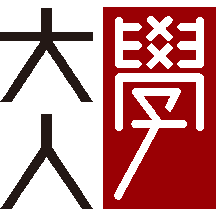我在美國和加拿大,有許多人脈和機會,都是「聊出來的」。如果你很不擅長這類型的聊天,可以參考以下的步驟,不管線上或線下都適用。
1. 見面先寒暄,分享最近在做什麼。簡短就好,不用講太多細節或太嚴肅
好用句型:
- Hey, how are you doing?
- Thanks for coming. It’s nice to see you.
- How are things at _____(公司名). Anything new?
- I am V-ing.(例如:I am developing a new app/product.)
2. 用簡單句子介紹個人背景,不用太制式,也不要馬上遞 CV
以我自己為例:
I have a PhD in Translation and Interpretation, and I worked as an interpreter for seven years before founding an education startup in Taiwan.
After growing the business for a few years, I felt I needed more structured training in management and finance, so that’s what brought me to UBC.
3. 詢問對方公司或專案的需求
這點很重要,networking 並非只是「開心聊聊」,而是「探索雙方能否進行資源交流」。
我們可以用以下的句型來探詢:
- What are some of the greatest priorities your team is focusing on?
- Are there any current initiatives or projects where external perspectives or support could be helpful?
- From your perspective, what are the emerging challenges in your industry right now?
4. 根據對方的分享,說明自己能貢獻什麼
對方已經提出需求,我們就可以「對號入座」,提出可能的合作期望。
記得這裡「語氣」很重要。如果你很確定自己能夠貢獻,可以用 I am able to…,如果不是那麼確定,就可以用 might。
我們來看看幾個好用的說法:
- I’m able to support initiatives related to talent development and communication strategy.
- I might be able to help if your team needs support in content localization or market adaptation.
- Depending on what you’re building, I might be able to contribute insights on training program design or learner engagement based on my startup experience.
5. 討論雙方的下一步
如果有聊出至少一個明確的 action item(可以一起做什麼),這次 networking 就算成功。記得一定要跟對方約定明確的時間線,例如:Let’s follow up in mid-November!(我們十一月中再確認一下進度吧!)時間到了也要主動聯繫,和對方繼續推進合作。如果雙方聊不太來、無法達成共識,也不用灰心,至少保持禮貌,說聲:Thank you for your time. 在職場留個好印象。
最後,要熟悉 networking 的節奏,一定要多聊多嘗試,才能減輕緊張感、慢慢熟悉操作方式。LinkedIn 是串聯 networking 對象最好的工具,這兩個月來也收到不少同學詢問是否有相關課程。若有需求,歡迎參考 >> 【LinkedIn經營全攻略:建立個人品牌,拓展國際人脈,讓外商工作找到你】。
本文轉貼自:Sonny 老師的英文國際力(原標題:【Networking 的重點步驟】)
本站所有文章未經事先書面授權,請勿任意利用、引用、轉載。

























